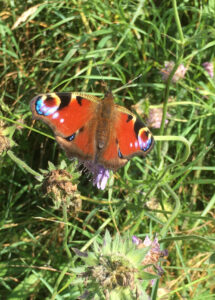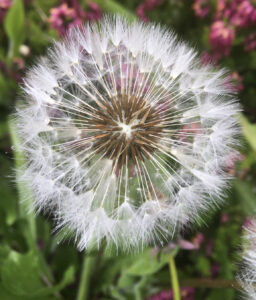Biodiversity is about the range of living things; plants, fungi, insects, animals and micro-organisms, living in one area as a community, each species interdependent on another. The more of these different species there are in these communities the greater the biodiversity and the healthier the environment. Places like Madagascar and the Tropical Andes are amongst some of the most biologically diverse on the planet and are vitally important biodiversity hotspots, but biodiversity is just as important much closer to home in local parks, nature reserves and even your own back garden.
Why does biodiversity matter?
Our basic human needs are fresh water, clean air and plants and animals for food, all of which is provided by these communities of natural species or ecosystems. A loss of the biological diversity within these ecosystems weakens it, making it less likely to be able to provide us with the essentials we need to survive. Consider the variety of food crops we have and that they are all derived from different native species, then consider if one was affected by a pest or disease, as long as we still have a plentiful supply of alternative native species we know we can find one that is resistant to the pest or disease and cultivate that for food. Less species diversity means less ability to find a suitable alternative food source. Similarly plants are able to absorb pollutants from the air and from the soil, if we have less plant cover and fewer different species then these natural systems will fail to operate effectively leading to poorer air quality and polluted soils. Bees are needed for pollination, ladybirds are one of many beneficial insects which eat bugs which would otherwise destroy crops, birds help with seed dispersal and the list goes on, we need every different species as each has a role to play. Just as importantly though we just need nature, we need the benefits nature brings to our spiritual experiences, our mental health and well-being, our creative inspiration and the beauty to our eyes.
What are the causes of biodiversity loss?

Sadly it is us, the human race who depend on the natural biodiversity in the world, who has caused the greatest loss of biodiversity. We have changed land use, clearing forests for agricultural or building town and cities. We have taken more than nature can reproduce; over fishing, hunting and poaching leading to species extinction. The adverse impacts of climate change; storms, drought, floods and temperature rises, affect species and habitats. We have polluted our planet, we are now acutely aware of the effects of plastic in our oceans and through our travels and trade we have introduced non-native species which are invasive and aggressive reducing the ability for our native species to flourish.
What can we do?
With such a huge and overwhelming issue it’s easy to think we are powerless to make significant changes and that this has to be something only governments’ and international institutions can change. The good news is we can all make a difference, each and every one of us can make small changes which collectively will make a big difference.
We can encourage wildlife into our local communities, in parks, green spaces and our own gardens. Groundwork prides itself on working with communities to improve green spaces for people and wildlife, our design teams understand the importance of planting native species in natural communities to create new habitats with careful regard to both the ecology and the character of the landscape. We design and create community woodlands, we re-naturalise rivers and streams and we create wildflower meadows making bigger, better and more connected habitats. Even if we are only able to incorporate a single native tree in our designs it is worth noting that a Silver Birch tree can for example support 229 associated insect species, its seeds are popular with over-wintering birds and small mammals and older trees may play host to bracket fungus and woodpeckers.

We can take care of our green spaces, take litter home, or join a volunteer group to maintain a natural space. Groundwork maintains many natural spaces with the help and support of local volunteers.
So why not encourage nature into your own garden, no matter how small it is, there is always room for wildlife. Let your lawn grow long like a meadow, leave an untidy corner for bugs and insects, add a pond or add a window box with flowers for bees and remember ‘weeds’ are not undesirable they are our native wild flowers.
Blog by: Jo Phelan, Groundwork Greater Nottingham
